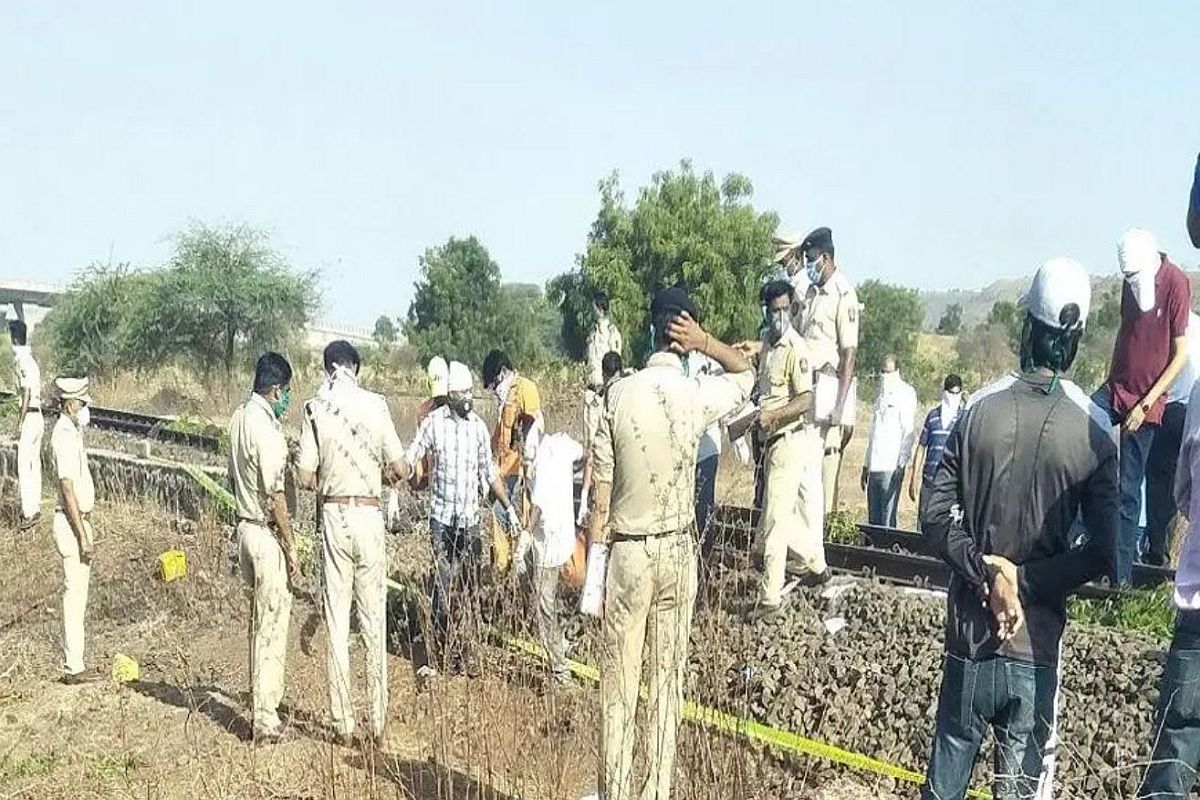PM Modi to inaugurate SOUL Leadership Conclave in Delhi today
Prime Minister Narendra Modi will inaugurate the first edition of the SOUL Leadership Conclave in Bharat Mandapam, New Delhi, on Friday.
Trudging their way home to Madhya Pradesh, fatigued by cumulative effects of the privations forced on them by a 7-week lockdown and a long trudge in the summer heat, their senses were so dulled that they did not even find the energy to respond to the menacing clatter of an approaching train.

A senior railway official confirmed that 15 migrant labourers were run over by a freight train between Jalna and Aurangabad of Nanded Divison of South Central Railway. (Photo: Twitter | @IamAlon59139166)
Well as governments in New Delhi and some states might claim credit for their role in containing the Covid-19 pandemic, the story of the management of India’s migrant labour since March 25 must go down as one of abiding shame. That shame was brought chillingly home to India’s ruling classes when a group of 16 migrant labourers was run over by a goods train in Maharashtra’s Aurangabad district on Friday morning.
Trudging their way home to Madhya Pradesh, fatigued by cumulative effects of the privations forced on them by a 7-week lockdown and a long trudge in the summer heat, their senses were so dulled that they did not even find the energy to respond to the menacing clatter of an approaching train. How racked by hunger, how tired and helpless they must have been to have allowed death to take them in this fashion is difficult to imagine.
Advertisement
How desperate they must have been to even attempt such a journey ~ as thousands of others also have ~ is nearly as difficult to imagine. But one thing is clear. India’s working classes, those faceless, nameless souls grinding away on the periphery of our existence, must feel utterly and completely betrayed by their rulers. To be driven to such desperation as to walk hundreds of kilometres confirms they must have lost all faith in the ability of governments to cater to their most basic needs, the many promises by leaders notwithstanding.
Advertisement
Then there is the criminal vacillation of some governments, the welter of decisions that veer one way on one day and the other the next. Karnataka is a classic case, where a decision to send migrants home was overwhelmed by pressure from the builders’ lobby. A day later, there was another U-turn when the state realised that promise of jobs notwithstanding, migrants had started to walk home. But Karnataka is not unique.
All the signs of fear and restlessness were visible from the day the first lockdown came into effect, when thousands of migrants flocked to an east Delhi bus terminal in a futile search for transport that was soon subsumed by the decision to walk to distant homes. They manifested themselves again when several hundred migrants crowded a suburban station in Mumbai shortly before the first lockdown was to end in the belief they would find passage home.
Promises of shelter and rations were made on each such occasion but met only in small part, leaving an overwhelming majority to opt for tortuous treks that would test the most able-bodied of them. By end-March, one report said at least 22 had died while walking home. In April, a child trudging home with parents died, as did many others. Just the other day, a report said that at least 42 migrant workers had perished in road accidents while walking back to their villages.
But ignoring the travails they might face, migrants have continued to surge out of India’s cities and towns ~ on foot or riding bicycles, armed with insufficient food but forced by desperation to nurture the fond hope that a distant village might offer sanctuary a heartless India has been unable to provide.
Advertisement